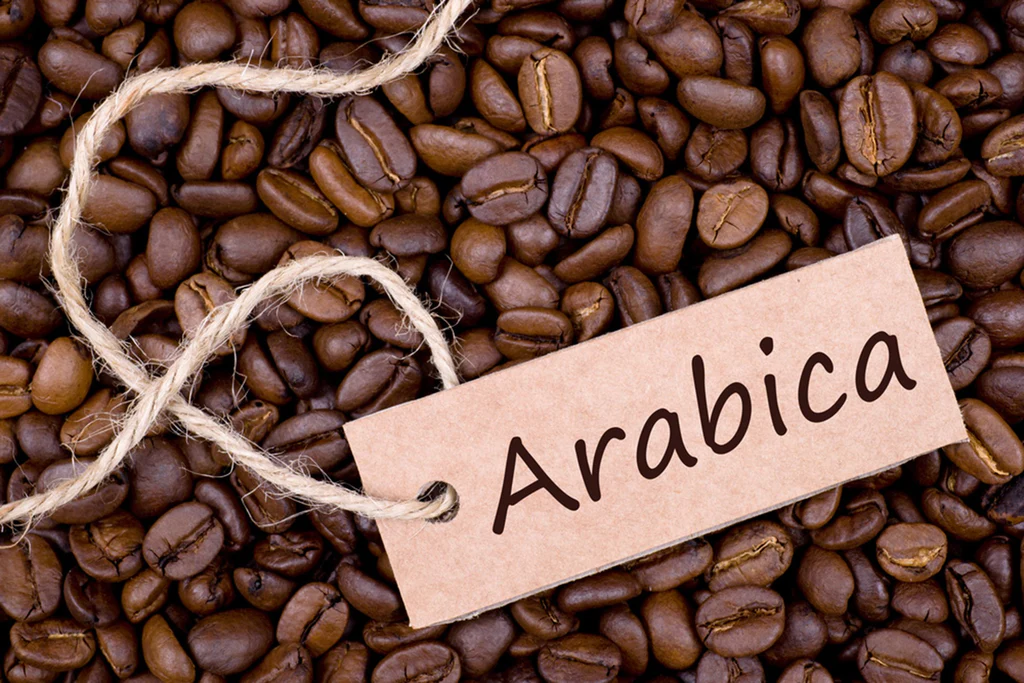
P.C: OnHisOwnTrip
You would have often come across 100% Arabica labels on the package while buying coffee. The brands use this on the label – to indicate that their coffee is of high quality.
So, why is Arabica coffee considered to be of high quality and is highly preferred by roasters- around the world? To understand this, you should know what exactly Arabica coffee is and how is it different – from other species of coffee.
What is Arabica coffee?
Originated in Ethiopia, Arabica coffee is the species of coffee, which comes from the beans of a Coffee Arabica plant. Considered as the first species of coffee to be cultivated, today, Arabica coffee makes up about 60-70 per cent of global coffee consumption.
Plantation:

P.C: Daleys Fruit Tree Nursery
Majorly grown in a tropical and sub-tropical climate, the coffee arabica plant prefers light shade. Cultivated at higher elevations, at an altitude between 2,000 ft above sea level to 4,300-4,900 ft.
The plant begins to produce white, small, and fragrant flowers two to four years after the plantation. To prevent, over-flowering the trees are pruned from time to time, resulting in the appearance of berries. It takes approximately 3-4 years for the coffee Arabica plant to bear fruit and nearly 5-7 years to grow maturely.
Unlike the other popular species of coffee, Coffea Canephora (commonly known as Robusta), the Arabica coffee plant is self-pollinating. Self-pollination keeps all the forms of the Arabica coffee plant stable, with less mutation, giving a more consistent bean production. On the contrary, Robusta is a cross-pollination plant with more variety and differences in – bean types and flavour.
Arabica coffee contains less caffeine which makes it more susceptible to pests and diseases. Arabica coffee plant requires extra care and attention, compared to Robusta, which is highly resistant to disease and much more adaptable.
First bean to be discovered:
Believed to be the first coffee bean discovered, the Arabica’s discovery is associated with an interesting story of Kaldi. Goat herder, Kaldi noticed how his goats became excited after consuming cherries from a tree – the Arabica tree.
He then went back to the monastery and shared his discovery with the monks, calling it a drink of the Devil.
They then placed the beans in the pot and covered it with hot water for preservation, yielding the world’s first cup of coffee. The resulting aromatic drink helped them in feeling energetic and staying awake at night. This drink got popular across the Arabian Peninsula in the 15th century before spreading to Europe in the 17th century.
Taste:
When it comes down to taste, Arabica coffee is considered superior to any other coffee species. There is no exact flavour guide for Arabica, as it has an extensive taste range (depending on varietal). Arabica coffee tends to be smoother and sweeter, with flavour notes of chocolate and a hint of fruit or berries. High-quality Arabica has a sweet flavour with a bit of chocolate-like caramel and fruity aroma.
Benefits of Arabica Coffee:
Although there has always been a debate about coffee being an unhealthy drink, studies in recent years have proven otherwise. Arabica coffee contains antioxidants, vitamins, and minerals such as manganese, potassium, magnesium, niacin, riboflavin.
Years of research has found that moderate consumption of Arabica coffee may lower the risk of developing type 2 diabetes, helps to prevent dementia and Alzheimer’s disease. Consumption of high-quality Arabica is frequently associated with weight loss.
Growing region:

P.C: Caffe Venturato
The geographic location plays an important factor in determining the taste of the coffee. The Coffee Arabica plant grows best in tropical and sub-tropical climates. The coffee arabica belt is spread widely across the globe, from Latin America to East Africa and central Africa and some parts of Asia.
Price:
The excessive care and maintenance- that goes on in the plantation result in a higher price for Arabica coffee bean. The price for 1kg of arabica coffee beans can range from 20 USD to 35 USD (620 THB- 1,800 THB).
At Don Carlos, we provide premium Italian pure arabica coffee in varieties such as ground and compatible capsules. Check out the Don Carlos store for more products of premium Italian coffee.